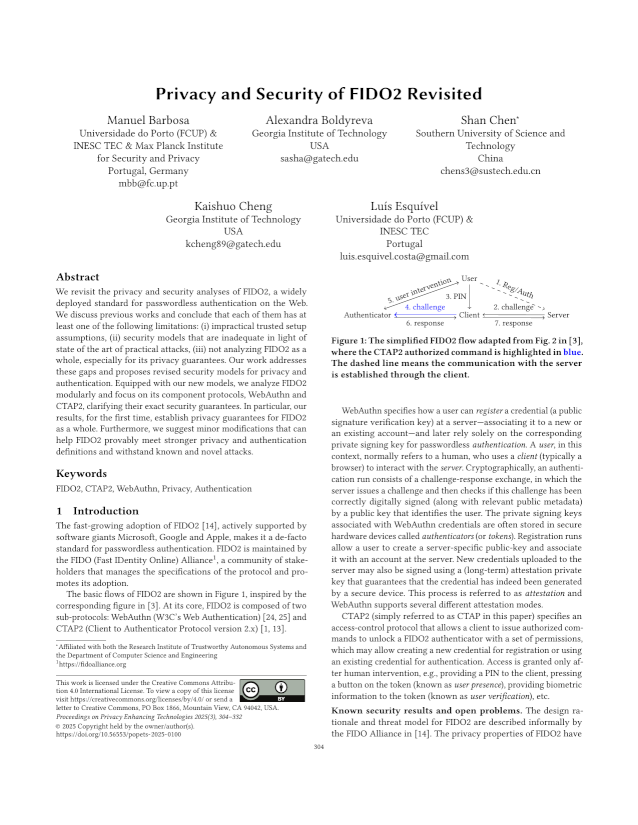Privacy and Security of FIDO2 Revisited
Authors: Manuel Barbosa (Universidade do Porto (FCUP) & INESC TEC & Max Planck Institute for Security and Privacy), Alexandra Boldyreva (Georgia Institute of Technology), Shan Chen (Southern University of Science and Technology), Kaishuo Cheng (Georgia Institute of Technology), Luís Esquível (Universidade do Porto (FCUP) & INESC TEC)
Volume: 2025
Issue: 3
Pages: 304–332
DOI: https://doi.org/10.56553/popets-2025-0100
Abstract: We revisit the privacy and security analyses of FIDO2, a widely deployed standard for passwordless authentication on the Web. We discuss previous works and conclude that each of them has at least one of the following limitations: (i) impractical trusted setup assumptions, (ii) security models that are inadequate in light of state of the art of practical attacks, (iii) not analyzing FIDO2 as a whole, especially for its privacy guarantees. Our work addresses these gaps and proposes revised security models for privacy and authentication. Equipped with our new models, we analyze FIDO2 modularly and focus on its component protocols, WebAuthn and CTAP2, clarifying their exact security guarantees. In particular, our results, for the first time, establish privacy guarantees for FIDO2 as a whole. Furthermore, we suggest minor modifications that can help FIDO2 provably meet stronger privacy and authentication definitions and withstand known and novel attacks.
Keywords: FIDO2, CTAP2, WebAuthn, Privacy, Authentication
Copyright in PoPETs articles are held by their authors. This article is published under a Creative Commons Attribution 4.0 license.

